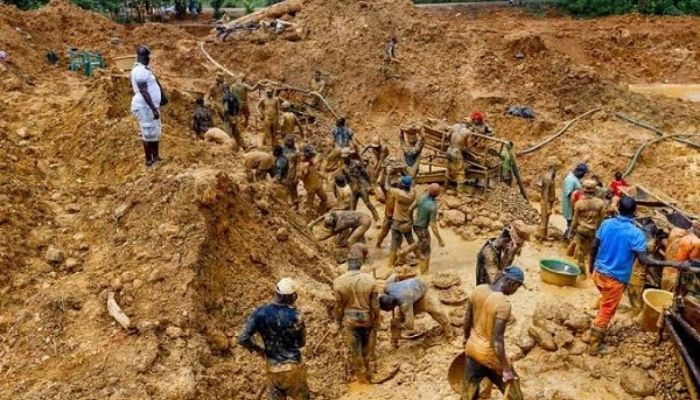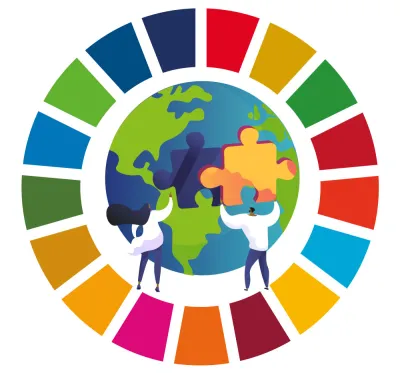culled from GUARDIAN, June 7, 2005
Nigeria is so predictable it makes you wonder. A US Intelligence report which projected a plausible scenario of the collapse of Nigeria, as we know it, is the latest to elicit this predictability. As if determined to prove to the authors of the report how right they were, the cacophony that deluged the public space was without pause for reflection on the meaning of the report, from officialdom, and even from elements in civil society.
My object today is not really to deal with the veracity or plausibility of the scenario projected in the US Intelligence evaluation of the Nigerian experience. I am more inclined to showing how the reaction of a good proportion of the Nigerian elite reflects the challenge of leadership in our country.
It also is an opportunity for a wake up call, that if we do not make what sacrifice it takes to reclaim our country from dominant political elite we ought to be preparing for the future that will make today's painful failings seem like days of glory. Nigeria's elite is simply living in denial about its own reality and decay we confronted by. In stead of look truth in the eye it tends to take shelter in blaming others for its failings.
It is a remarkable irony that the edition of the newspaper in which I first read of the whining of our senators and the invectives they heaped on the source of the report carried a long interview with one of the Governors from the South West. In that interview the Governor said Nigeria would collapse if certain things were not done at the political reforms conference. It also had another story on a different Governor of the South West charging that what we have is not democracy but tyranny. It struck me that it seems okay if we say it, but unacceptable coming from others.
Even if the Nigerian leadership that reacted with much anger at the report thought publishing it was not the politically correct thing to do the reactions still showed that those who claim to lead do not understand the purpose of such intelligence reports. It certainly is not for the purpose of exchanging pleasantries regarding how countries think about each other. One wonders how the senate would have reacted to the Subramanian and Xala-i-Martin IMF paper that described Nigeria as metaphor par excellence of a failed development experience.
I know quite a few people in Nigeria's intelligence Community, I know them to be brilliant and very talented. Given such pedigree I take it for granted they are from time to time looking at trends and trying to forecast the future. Doing that is an imperative of any people who want to be able to prepare to ensure their interests are managed for the good of their society.
Business teachers try to get corporate chieftains to do same in their company's interest for the good of their society. Academics also engage in such trend analysis and forecasting. Francis Fukuyama forecast a post cold war world of sprouting democracies under a kind of Pax Americana. It has turned out that his professor at Harvard, Samuel Huntington, may have had a better crystal ball in projecting a clash of civilisations as Islam and the West engage.
Robert Kaplan whose scenario building of a post Tito Balkans turned out remarkably on the money has forecast "the coming anarchy in a book that repeatedly cites Nigeria as a major fault line in the international community's potential descent into anarchy from ethnic and religious conflict in third world countries. Francis Fukuyama's latest book which focuses on Institutions and systems in emerging societies is less triumphalist and a more realistic periscope of the global order than his earlier volume "The End of History"
What thinking people do when they see an evaluation of their society and where it may be perceived to be headed, is to become reflective, evaluate the report very closely to see what they must do to avert disaster and turn things in a way that will confound doomsayers. Not those who lead Nigeria. We begin to abuse as if a mortal enemy has just sent a ballistic missile our way. Yet the country in question, from the number of visits by General Obasanjo, must at least be a friend of the regime if not of the Nigerian people. What then should be their motive in creating much aggravation in a friendly country? Surely not just pure spite as some make out. If the report was to help them plan how to mitigate or take advantage of trends around the world for their own interest would abusing them make difference?
I do not say ulterior motives are far from them. Indeed many have read John Perkins' 2004 Bestseller "Confessions of an Economic Hitman". The autobiographical book, by an American Economist who worked for a consulting group was on "highly paid professional who cheat countries around the globe out of trillions of dollars" and bring them under the control of the US, using trade, aid and institutions like the multilaterals dominated by the US. What an enlightened leadership, if it has fears that these may be the motives is create conditions that prevent such unacceptable influence. They may also choose to engage in ways that result in win-win mutual benefit transactions with those relevant foreign powers.
Extant reality, as reaction to the American report shows, unfortunately reflects this dominant culture of thoughtlessness in the face of grave threat. With purpose playing second fiddle to coveting power, robust public and policy arena discussion of issues gives way either to polemics of unreason or hostility towards competing points of view. The result is much effort at movement and little motion, adding to threats to our nationhood.
This living in denial about the Nigerian condition keeps its political elite happy with a recursive economy in which the atrophy of the middle class continues and reforms have gone in a way that has produced a few people with incomes way in excess of the value they have created. The widening of the gap between the top and bottom income deciles, as Gini coefficient trends indicate, is not the only consequence of how we implement some well intended reforms such that they become like iatrogenic medicine where the treatment kills the patient. These are facts threatening Nigeria's future. The willingness of this group rent champions, who thrive from poor implementation of reforms, to splash this wealth, as donations, at events in support of projects of public officials, is increasingly makings Kaplan's vision of the coming anarchy, especially the point about the revenge of the poor, as Sierra Leone Minister pointed to in his book, one of the reasons it is plausible to speculate that Nigeria may not be around in 15 years.
The time is now, therefore, for those who believe in Nigeria to stand up and be counted in holding those who should never have been allowed near power, accountable, and ensuring that they are soon replaced by a thinking and patriotic class passionately committed to the ordinary person invested with the dignity of God's children and a right to decent living. It makes sense that that quality of life will come from a united and prospering Nigeria with a broad middle class, but it seems to me that today's values can lead only in one direction, the opposite of that desired end.....Unless thinking people arise. The charade of 1999 and the travesty of 2003 have tainted elections enough that 2007 could easily become the beginning of the end .... Unless people who think act. In many ways the American report may be our call to order if our children are to be saved memories of the type Hotel Rwanda preserves for generations of Rwandans .... All because thinking people failed to act.
The sense of urgency I feel is very high. Not since I expressed similar thoughts following the events of June 23 1993 which ultimately resulted in the founding of the Concerned Professionals have I been so worried. To be fair some good has happened. General Obasanjo's effusive enthusiasm for a Nigerian renaissance has inspired hope in some and his stubborn support for his capable but too narrow and sometimes distant economic team will prepare the grounds for some good afterwards, if a retrogressive team does not take over.
But much more has gone wrong and there is little time to mend things. Many Nigerians who think have been aware for a while of looming danger. If it took a foreign intelligence report to agitate the consciousness of any Nigerians on these matters then they have not been watching the political reforms conference and the display of the inability of the elite to recognise even their own best long term interest.
Failure to connect with the people unfortunately keep the gain shallow and without roots. This has created a situation in which the possibilities of rapid progress and rapid decline are almost of equal weighting. All will be lost ...unless thinking people step up to bat.
Instead of blaming others may be it is time for us to begin to reflect that if Nigeria collapses we all lose something and that Nigeria cannot but collapse if we do not mend our ways, place service at the centre of public life and reduce drastically the level of conflicts of interest in the conduct of people both in the public and private sectors.
Very importantly, we live in the knowledge age and we need knowledgeable and thinking people in public service not people for all that counts is power. We also need responsive regimes if Nigeria is to make progress. Just think of something as simple as the so called VIP movement that regularly endangers the lives of air travellers in Nigeria. So much have been said about it yet the leaders and protocol people do not care, a reflection of their contempt for the Nigeria people. How can such a society survive?
All said and done we are hopeful and trust that the forecast will go the way of many forecasts, with a thriving Nigeria here twenty years hence. But it will not happen from wishful thinking. It will happen when thinking people get off their comfort zones because there is fire on the mount. It is time to think and act.
Professor Utomi is Director, Centre for Applied Economics at the Lagos Business School, Pan African University.
RETURN

Civil Society and Social Movements: The Role of Activism and Radical Politics in Deepening Democracy in AfricaByOtive Igbuzor, PhDFounding Executive D...

Chimaroke Nnamani: Progenitor of Ebeano politics at 64By Paul MumehChimaroke-Nnamani2.jpg 88.87 KBHate or love him, Senator Chimaroke Nnamani; fo...

Background To The Recent Nigerian ElectionsGeneral Obasanjo more than just a "friend" of the AmericansElizabeth Liagin is an independent journalist wh...

Sustainable Development and Mining Host communities ByOtive Igbuzor, PhD, FPSN, FSM, MIoL, UKAfrican Centre for Leadership, Strategy & ...

THE CASE FOR CIVIL SOCIETY ORGANISATIONS (CSO) SELF-REGULATIONByOtive Igbuzor, PhDFounding Executive Director,African Centre for Leadership, Strategy ...